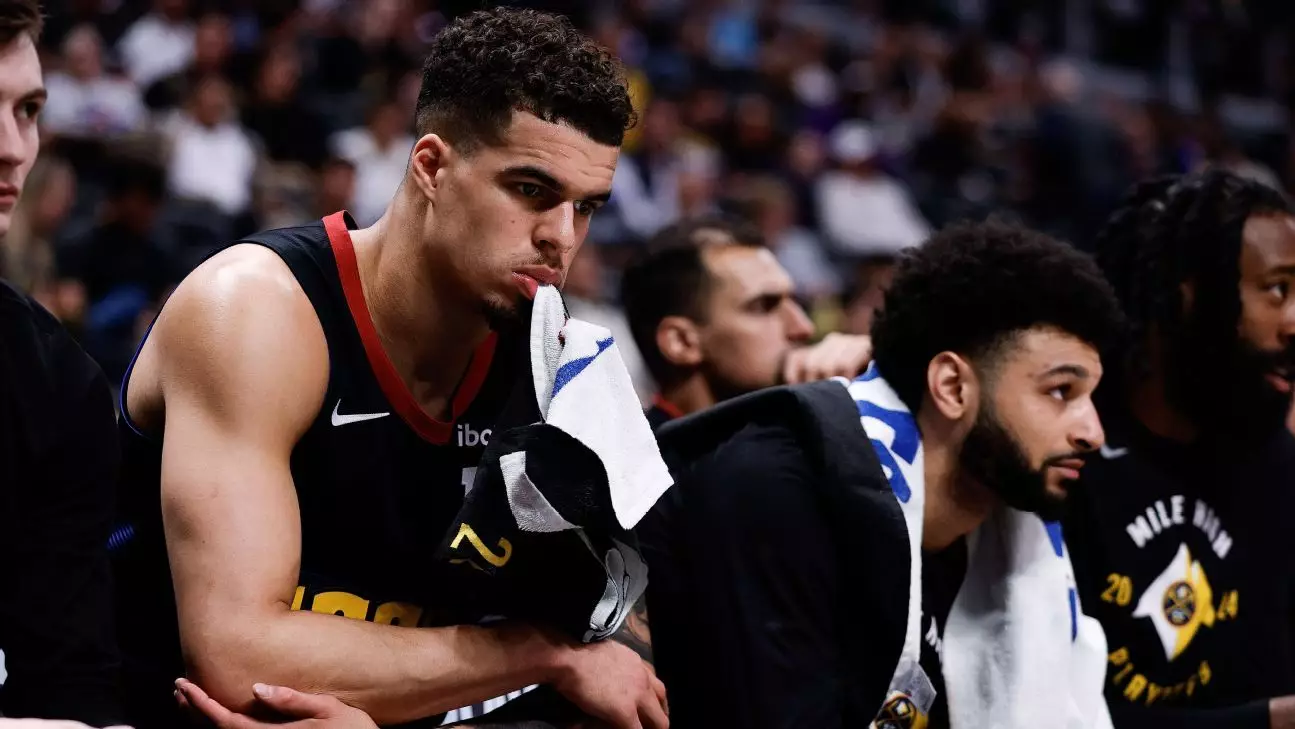In recent years, the surge of sports betting has transformed the landscape of athletic competition, often leaving behind the fundamental essence of why we love sports: the thrill of genuine competition and the joy of the game. Former NBA player Michael Porter Jr. sharply criticizes this phenomenon, asserting that the core enjoyment of sports has been overshadowed by profit-driven motives. This shift from love of the game to monetary gains has compromised not only the integrity of athletic contests but also the emotional connection fans once cherished. When the focus shifts to betting odds and gambling profits, the authenticity of play diminishes, and the spectator experience becomes transactional rather than celebratory.
The Ripple Effect: Gambling’s Devastating Consequences
Porter’s candid remarks reveal a disturbing truth — the dark side of sports betting infiltrates the lives of players and their families. His brother, Jontay, became a stark example of this danger when he was banned from the NBA for participating in a gambling scheme aimed at manipulating game outcomes for monetary benefit. Jontay admitted to fixing his own game to help gamblers settle debts, shining a light on how deep gambling addiction can entangle athletes in ethically compromising situations. Such actions tarnish the reputation of sports, undermine fair play, and threaten the trust that fans and stakeholders place in professional leagues.
The implications extend beyond individual players. Porter highlights a brutal reality: athletes who come from impoverished backgrounds are particularly vulnerable to the lure of easy money through betting. The prospect of harming their families or supporting friends by risking their careers can create a dangerous moral haziness. Additionally, the culture of betting creates a scenario where athletes may feel pressured or tempted to compromise their integrity to satisfy external gamblers, often facing severe consequences if they refuse or fail to perform as expected.
The Need for Stricter Regulations and Cultural Shifts
Porter’s stance advocates for a much-needed reevaluation of how sports betting is regulated and integrated into the athletic world. He suggests stringent restrictions—limiting betting activities to physical venues like Las Vegas rather than expanding into the unregulated and easily accessible online sphere. His concern is that online sports betting, which is rapidly proliferating, exacerbates the problem, making it easier for vulnerable individuals to develop addictions or become embroiled in illicit schemes.
More fundamentally, there must be a cultural shift within sports communities. Athletes require better education and support systems to resist gambling temptations. The industry’s normalization of betting, driven by lucrative advertising and sponsorship deals, needs to be challenged, aiming to restore the sport’s integrity. Without decisive action, Porter warns that the decline in sportsmanship and the rise of unethical behaviors will continue unchecked, further damaging the fabric of athletic competition and eroding public trust in sporting institutions.
In essence, the ongoing expansion of sports betting calls for a collective reevaluation: Are we willing to prioritize entertainment and profit over fairness and authenticity, or will we actively work to safeguard the true spirit of sports for future generations?

